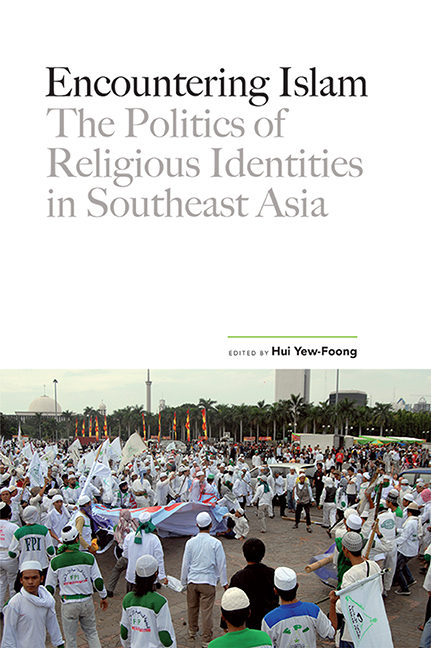Book contents
- Frontmatter
- Contents
- Acknowledgements
- Contributors
- Part I Introduction
- Part II Islam across Borders
- Part III Malaysia
- Part IV Indonesia
- Part V Muslim Minorities
- 11 Malay Muslims and the Thai-Buddhist State: Confrontation, Accommodation and Disengagement
- 12 Identifying with Fiction: The Art and Politics of Short Story Writing by Muslims in the Philippines
- 13 Issues on Islam and the Muslims in Singapore Post-9/11: An Analysis of the Dominant Perspective
- Index
12 - Identifying with Fiction: The Art and Politics of Short Story Writing by Muslims in the Philippines
from Part V - Muslim Minorities
Published online by Cambridge University Press: 21 October 2015
- Frontmatter
- Contents
- Acknowledgements
- Contributors
- Part I Introduction
- Part II Islam across Borders
- Part III Malaysia
- Part IV Indonesia
- Part V Muslim Minorities
- 11 Malay Muslims and the Thai-Buddhist State: Confrontation, Accommodation and Disengagement
- 12 Identifying with Fiction: The Art and Politics of Short Story Writing by Muslims in the Philippines
- 13 Issues on Islam and the Muslims in Singapore Post-9/11: An Analysis of the Dominant Perspective
- Index
Summary
The short story in the Philippines has proven to be an exceptionally popular genre. Awards offered by magazines and other literary outlets are sought after and in traditional media, literary magazines, college publications as well as on Internet sites the prospect of publishing a short story continues to hold great appeal for writers and aspiring authors. Although introduced in English in the early part of the twentieth century during the American colonial period, the short story took root on fertile soil: established vernacular narrative traditions in the Philippines and publishing outlets in languages including Spanish, Tagalog and Cebuano paved the way for the short story's acceptance as a new genre in Filipino literature. In 1940, the Filipino literary critic and writer Jose Garcia Villa wrote that the short story was the Philippines’ “most developed art”. By the 1950s and 1960s, the most popular short stories were being written in English: the short story was regarded as indisputably Filipino, a genre in which Filipino artistic expression could flourish.
Muslim Filipinos have their own as yet under-explored relationship to the short story in English. Muslim Filipinos participated in this national literary culture by mastering the same literary rules their Christian counterparts adhered to and by telling stories that resonated with the English-language reading audiences. The writing styles of the Muslim authors are, at times, indistinguishable from other short story writers. But the stories by Muslim writers also conjure the differences they experienced moving within and across different social worlds. Short story writing was a way for Muslim Filipinos to move inside the artistic and literary life of the nation. They represented themselves and their home communities as well as the dominant culture within which they studied, worked, and lived. This chapter looks at Muslim Filipino short story writing in thematic and historical perspectives and argues that their writing and publishing can be read as acts of self-representation and negotiation of individual and collective identities. It considers works written between the 1940s and the early 2000s by men and women, most of whom were born in the Muslim south.
- Type
- Chapter
- Information
- Encountering IslamThe Politics of Religious Identities in Southeast Asia, pp. 313 - 334Publisher: ISEAS–Yusof Ishak InstitutePrint publication year: 2012



